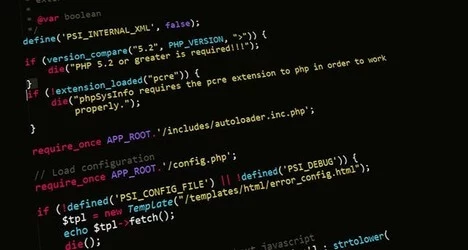3 Ways Blockchain Will Disrupt HR
Add bookmarkTechnology and its continued disruption of human resources is well documented. From people analytics to wearable technology, professionals within the HR community continue to grapple with the challenges presented by the disruption.
It is right, then, to consider one of the newest technologies to impact the HR community. That technology is Blockchain.
Block what?
For the purposes of this article, let me define what Blockchain is and examine its attributes.
Courtesy: StockPhotoSecrets
Definition: “The blockchain is a decentralized ledger of all transactions across a peer-to-peer network. Using this technology, participants can confirm transactions without the need for a central certifying authority. Potential applications include fund transfers, settling trades, voting, and many other uses.” – PwC
To further explain, here are some examples.
Example 1: Person A decides to pay Person B $50. Under our current, centralized system, Person A would initiate the payment. Then, a third party, such as a bank, would verify that Person A has the money and would then allow the payment to go through.
Example 2: In a decentralized, Blockchain system, Person A initiates the payment (the block). It’s verified online by everyone who has access to the chain where the block is housed. A quick note of importance here: everyone with access to the chain has to approve the transaction is valid. Once the transaction is verified, the block is added to the chain and Person B is paid. By removing the third party and allowing others in the network to verify the transaction, it impairs a criminal’s ability to tamper with the data.
Other points of information:
- Blockchain is the backbone of cryptocurrencies. The most well-known example is Bitcoin.
- Blocks in a blockchain cannot be edited once created. Additional information can only be added. Much like the verification of a transaction, the adding of information requires agreement from everyone attached to the chain.
- Blocks are added in chronological order. Once placed, they cannot be altered in anyway, which significantly impairs fraud attempts. The chronology of blocks also ensures any one block can be located easily.
- Blocks in a chain are encrypted ensuring privacy.
All of the attributes above allow for:
- Increased transparency
- Accurate tracking
- Permanent ledger
- Cost reduction
Human Resources Applications
With all of the technologies available to HR professionals, blockchain is the least exciting, but it makes up for that in that it has the most potential to impact the community.
According to a report from PricewaterhouseCoopers, blockchain’s effects on HR will be “profound and pervasive – not least because of its impacts on talent and skills.” In fact, it was suggested at the Human Resources Executive’s 20th Annual HR Technology Conference & Exposition in Las Vegas in October 2017 that blockchain would impact HR within the next 18-24 months.
But how?
Recruitment
For recruiters, reading and looking through resumes is a long and arduous task. It involves a fair amount of verifying education, certifications, work experience, and applicant skills. Imagine now the process can be significantly faster.
As previously stated, blockchains cannot be edited. Users can only add information, and even then it must be approved by those with access to the chain.
When put in context of recruitment, the path is clear. Once a person creates a blockchain resume, it cannot be altered. This gives recruiters a chance to verify a candidate’s credentials in a secure way. It also reduces the chances those credentials can be altered or faked. Put simply, it impairs the ability of a person to exaggerate or flat out lie on their resumes.
It also allows for real candidate history to be recorded.
“It would force people to rethink not giving notice, starting a job, but then they leave after a few days, all kinds of crazy things we see candidates do but it never ‘hits’ their permanent record,” Tim Sackett said. He’s the President of HRU Technical Resources, a leading IT and Engineering Staffing firm headquartered in Lansing, Michigan. “What if your blockchain profile would show the times you accepted an interview, then no call/no showed it!? Oh boy! I would sign up for that!”
At least two companies are looking at using blockchain in the recruiting space. Recruit Technologies and Ascribe are developing a prototype blockchain resume authentication service for job hunters. It would allow for digital verification of certificates and resumes.
Payroll Applications
In addition to recruitment, experts believe blockchain could also impact payroll.
Global payroll can be a costly affair because there are several intermediaries; banks and third parties involved in the process. Blockchain has the ability to simplify the process and standardize payments.
Essentially, pay would utilize cryptocurrency. Since cryptocurrencies are reliant on blockchain technology, that makes sense. But the process is being stalled a bit because there are several laws in place that govern pay and how it is delivered.
Nonetheless, one company is trying to move forward with a blockchain-based payroll system. That company is Bitwage. It uses the technology for cross-border payments using Bitcoin. The company allows employees or contractors all over the world to be paid by employers with their currency of choice. Bitwage then converts that payment to bitcoins and then to the currency of choice for the employee.
Fraud Prevention, Cybersecurity, and Data Protection
HR deals heavily in personnel and financial data. As such, this makes HR departments a prime target for hackers and other cyber criminals.
Because of blockchain’s attributes, it severely cripples cyber criminals’ abilities to hack and cause mayhem with this type of personal data.
“Blockchain’s use of consensus to establish facts helps to squeeze out fraud. And given that cyber risks can spring from an underlying lack of transparency in systems and data, the threat of cyberattacks is a further challenge that blockchain an help address.” – PwC
Conclusion
Though initially focused as a cryptocurrency technology, Blockchain has certainly begun to move out of that space and into others, namely HR. It is entirely possible blockchain will be used in other HR functions than the ones listed earlier in this piece.
But one thing is for certain, blockchain will answer a singular issue. One that, whether you noticed it or not, is weaved through this article: people do not trust each other. Blockchain can, in essence, can keep everyone honest. In a professional world where trust is simply not what it used to be, blockchain offers a real possibility of rebuilding trust between the two parties.
















